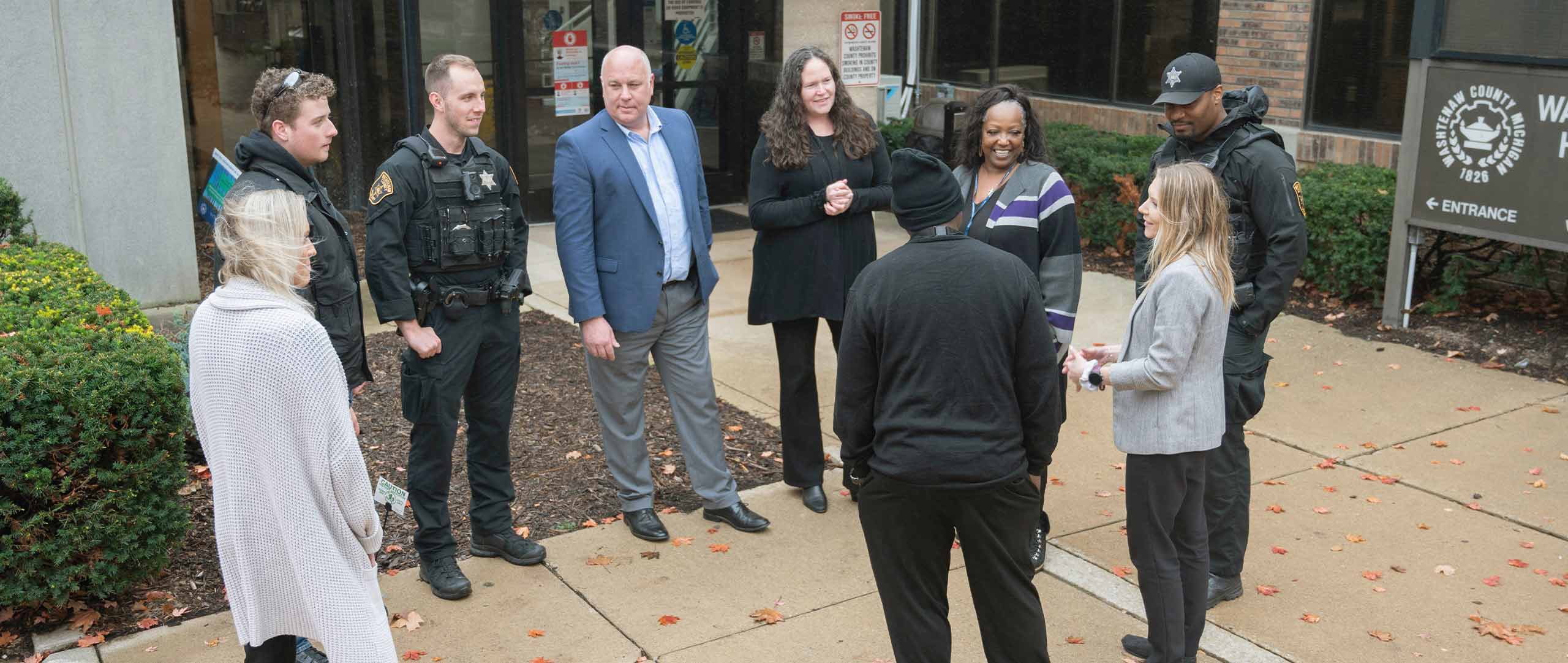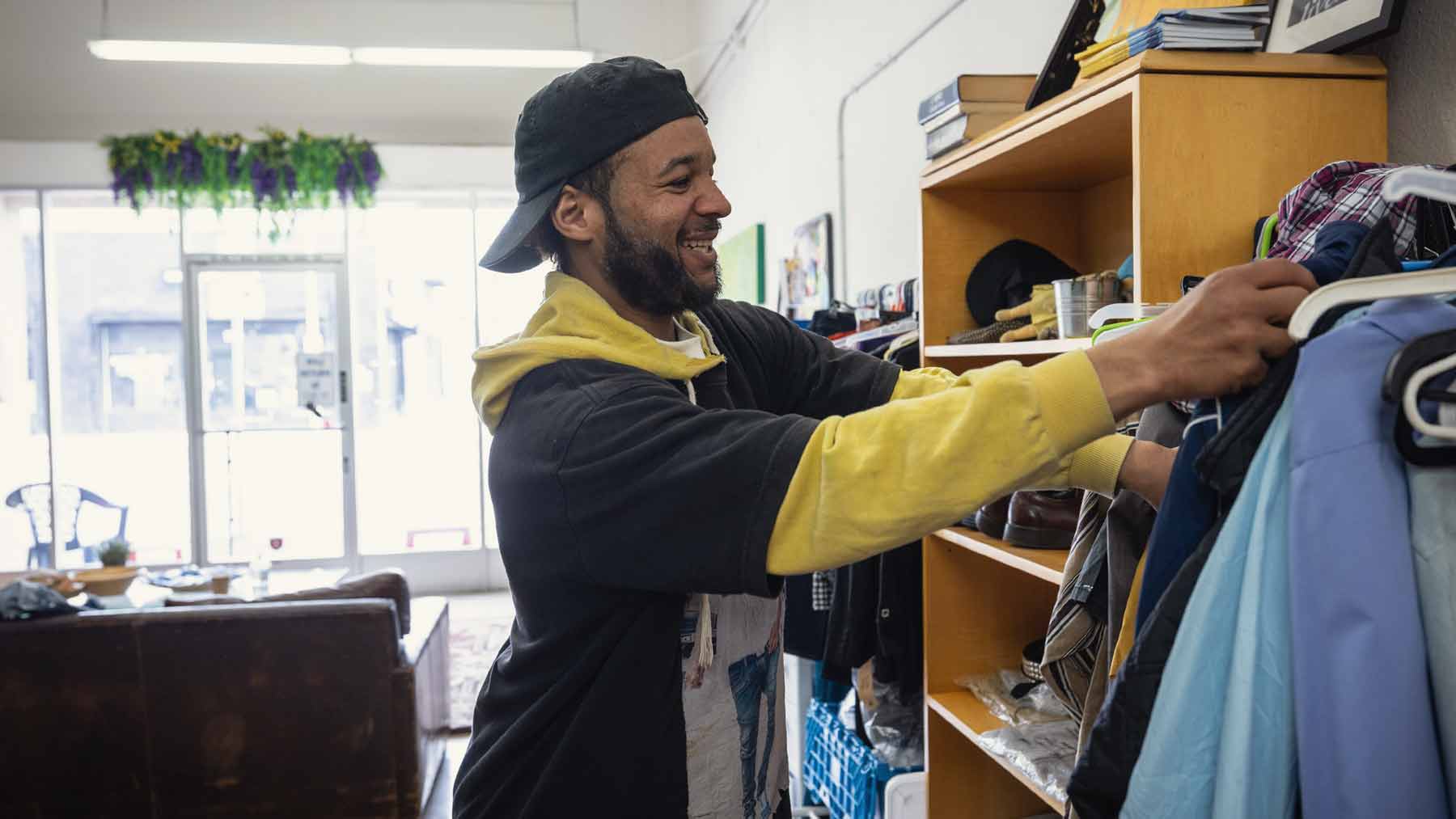LEAD strives to reorient the ways decisions are made, policies are set, and resources are allocated. To do this, LEAD initiatives require collective development and stewardship.
That’s why LEAD can be understood as a collective impact model. First defined in 2011, collective impact is a structured form of collaboration in which stakeholders from across a community work together to solve a complex problem that cannot be solved by any entity or sector on its own.
Reflecting this collective impact framework, stakeholders in each LEAD site come together to define the problems they all want to solve, establish and track shared goals, develop aligned policies and practices to achieve these goals, and collectively steward day-to-day operations. These stakeholders commonly include law enforcement, prosecutors, project managers, case managers, service providers, elected officials, and community advocates.
To this end, each site convenes a Policy Coordinating Group (PCG) of decision-makers and community influencers who are collectively responsible for developing and stewarding the overall initiative: setting policy, defining diversion-eligible offenses, approving protocols, overseeing data and evaluation, selecting service providers, developing communication policies, and managing strategic development.
Complementing the work of the PCG, the Operational Work Group (OWG) is composed of line staff from the relevant agencies who collectively undertake and coordinate the initiative’s day-to-day activities, including multi-disciplinary case review and service coordination. In addition, many LEAD sites establish a Community Leadership Team (CLT), to serve as a conduit to express the needs and desires of the broader community.
Each of these groups is charged with specific responsibilities that collectively develop alternatives to the criminalization of behavioral illness or poverty in their local community.






